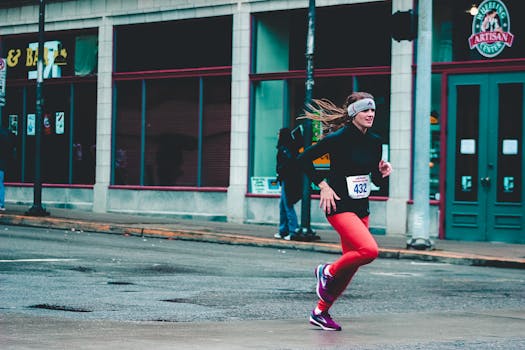
Introduction
Preparing your body for a marathon is not only about rigorous training but also about fueling it with the right foods. What you eat before race day significantly impacts your energy levels, performance, and overall experience. In this article, we will discuss the best foods to eat before a marathon to ensure you cross the finish line strong.
Why Pre-Marathon Nutrition Matters
Proper nutrition helps maximize your glycogen stores, maintain hydration, and prevent stomach discomfort on race day. The right food choices support endurance, reduce fatigue, and set you up for optimal performance.
The Best Foods to Eat Before a Marathon
- Carbohydrates: Your muscles rely on glycogen, which is stored from carbohydrates. Include foods like pasta, rice, potatoes, oats, and fruits in your meals.
- Lean Proteins: Protein helps repair muscles but should be consumed moderately to avoid gastrointestinal issues. Try chicken, fish, eggs, or tofu.
- Healthy Fats: Include small amounts of fats from sources like avocados, nuts, and olive oil to support sustained energy levels.
- Hydration: Drink plenty of water and consider beverages with electrolytes to stay hydrated and prevent cramps.
Sample Pre-Marathon Meal Plan
- Breakfast: Oatmeal topped with banana and honey, a slice of whole grain toast, and a glass of orange juice.
- Lunch (the day before): Grilled chicken breast, baked sweet potato, steamed broccoli, and brown rice.
- Snack: Rice cakes with almond butter and a handful of dried fruits.
- Dinner: Whole wheat pasta with marinara sauce, lean ground turkey, and a green salad.
Foods to Avoid
- High fiber and high-fat foods that can upset your stomach.
- New or unfamiliar foods.
- Excessive caffeine or sugar.
Conclusion
Fueling properly before a marathon can make a significant difference in how you feel and perform. Focus on familiar, carbohydrate-rich meals with moderate protein, low fat, and adequate hydration. Eat your main meal about 2-4 hours before the start time, and most importantly, listen to your body to find what works best for you.
Comments
Post a Comment